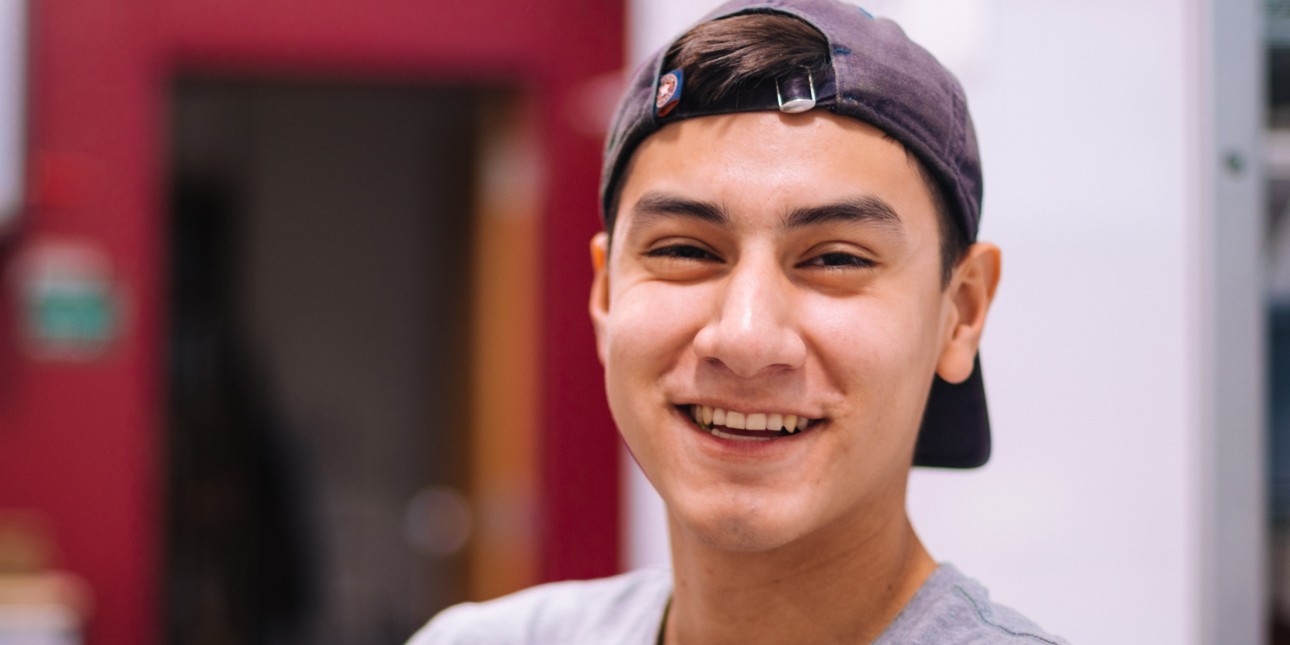MAYO ESL EL MES DE LA SALUD MENTAL (May is Mental Health Month)

Español
Tal vez has escuchado del trauma, la depresión, el trastorno bipolar, o de la adicción. Estos retos de la salud mental se pueden comparar a enfermedades físicas como la diabetes, un resfriado, el tener dificultades con la visión, o tener un dolor de panza. Hay enfermedades que son serias mientras otras ocurren de manera temporal. Sin importar la condición, tenemos la confianza de que la gran mayoría de personas pueden vivir de manera plena a pesar de alguna enfermedad física. De hecho, cuando mencionamos la salud física no siempre nos referimos exclusivamente a la enfermedad. Sabemos que la salud física también incluye el sentirnos bien. De igual manera la salud mental incluye cuando nuestras acciones, pensamientos, y emociones son positivas y agradables.
Te hacemos el reto de tomar unos minutos el día de hoy para considerar las siguientes preguntas:
- ¿Cuáles actitudes, pensamientos, u emociones te hacen saber que estas teniendo un día genial?
- ¿Cuáles actitudes, pensamientos, u emociones te hacen saber que estas teniendo un día malo?
- ¿Cuáles actitudes, pensamientos, u emociones te ayudan a reconocer que las cosas se están mejorando?
Una vez que tengas varias ideas relacionadas a estas preguntas, ahora toma nota de lo siguiente:
- ¿Cuál es un lugar, cosa, o persona que te ayuda a sentirte bien, sin importar la hora?
- ¿Cuál es una actividad que te hace sentir orgulloso/a y lleno/a de energía?
- ¿Cuál es la mejor manera que sueltas el estrés y te relajas? ¿Qué tan frecuente haces esto?
Ya que muchos tendrán retos de la salud mental por lo menos una vez en la vida, es posible que un amigo, compañero, o familiar te comparta que está pasando momentos dififciles. Si tienes la posibilidad de ofrecer apoyo, lo más importante no es el corregir la situación. Mas bien, lo que puede ser de más ayuda es:
- Escuchar sin juzgar,
- Preguntar de manera directa y neutral si tienen pensamientos suicidas o de autolesión (aprende a reconozer la señales del suicidio aqui),
- Ofrecer información, y si es necesario, recomendar ayuda de terapeutas/consejeros adecuados,
- Reconocer que con el apoyo adecuado, la mayoría de personas que tienen dificultades con la salud mental se recuperan y pueden vivir plenamente.
La salud mental es un tema que no mencionamos de manera frecuente, pero sabemos que es importante. La salud mental de todos cambia constantemente y casi siempre podrás lidiar de la mejor manera para ti. Todos tenemos momentos de nervios, ansiedad, o tristeza. Muchas veces estas son reacciones típicas a momentos no típicos. De vez en cuando estos pensamientos y sentimientos son fuertes y difíciles de manejar solos. Si en algún momento el lidiar de la manera típica no es suficiente, o te gustaría explorar alternativas, hay lugares y personas preparadas para ofrecer apoyo e información:
- Compartiendo Esperanza, un proyecto de NAMI (La Alianza Nacional de la Enfermedad Mental por sus siglas en ingles) para el bienestar de la comunidad Latina.
- Adriana Alejande, LMFT discute temas de la salud mental para Latinas, Latinos, y Latinxs en su podcast Latinx Therapy con nuevos episodios en español cada quince días.
- Para algún momento de crisis:
- Chatea gratuitamente con alguien 24/7, mandando la palabra AYUDA al 741741
- 422-AYUDAME por WhatsApp.
- Platica por teléfono 24/7, marcando al 1-888-628-9454.
- Chatea gratuitamente con alguien 24/7, mandando la palabra AYUDA al 741741
Tu bienestar es importante. ¿Que harás hoy para cuidar de ti mismo/a?
English
Maybe you have heard of trauma, depression, bipolar disorder, or addiction. These mental health challenges may be compared with physical illnesses like diabetes, a cold, poor vision, or a stomach ache. Some illnesses are serious while others happen for a short period of time. Regardless of which condition it is, we are confident that most people may live a full life. In fact, when we talk about physical health we do talk about illness exclusively. We know that physical health includes feeling well. Equally, mental health includes moments when our actions, thoughts, and feelings are positive and enjoyable.
We challenge you to take a few minutes today and consider the following questions:
- Which attitudes, thoughts, or emotions let you know that you are having a great day?
- Which attitudes, thoughts, or emotions let you know that you are having a bad day?
- Which attitudes, thoughts, or emotions help you know that things are getting better?
Once you have several ideas from these questions, make note of the following:
- What is a place, thing, or person that helps you feel well, regardless of the time?
- What is an activity that makes you feel proud or full of energy?
- What is the best way you release stress and relax? How often do you do this?
Since most people will experience a mental health challenge at least once in their life, it is possible a friend, colleague, or family member will come to you sharing they are experiencing a difficult moment. If you can offer support, fixing the issue is not the most important thing to do. Instead, what could be most helpful includes:
- Listening without judgment,
- Asking directly if they are experiencing thoughts of suicide or self-harm (learn the signs of suicide here),
- Share information and if necessary, connect with help from an appropriate professional,
- Acknowledge that with appropriate support, most people who experience mental health challenges can recover and live fully.
Mental health is a topic we do not talk about often, but we know it is important. Everyone’s mental health changes constantly and we often cope in the best way for each of us. We all have moments of nerves, anxiety, or sadness. Many times there are typical reactions to atypical moments. Every now and then these thoughts and feelings can be heavy and difficult to manage alone. If at some point typical coping strategies are not enough, or you would like to explore alternatives, there are places and people trained to offer support and information:
- Compartiendo Esperanza, a project from NAMI for the well-being of the Latinx community
- Latinx Therapy podcast
- For a crisis moment:
- Crisis Text Line
- Life Line
Your wellbeing is important. What will you do today to take care of yourself?

